This Programme Taught Me Everything About Social Entrepreneurship
Looking to build a career in social impact? The Post Graduate Programme in Development Management (PGPDM) by S. P. Jain Institute of Management and Research has helped over 300 professionals transform into changemakers.
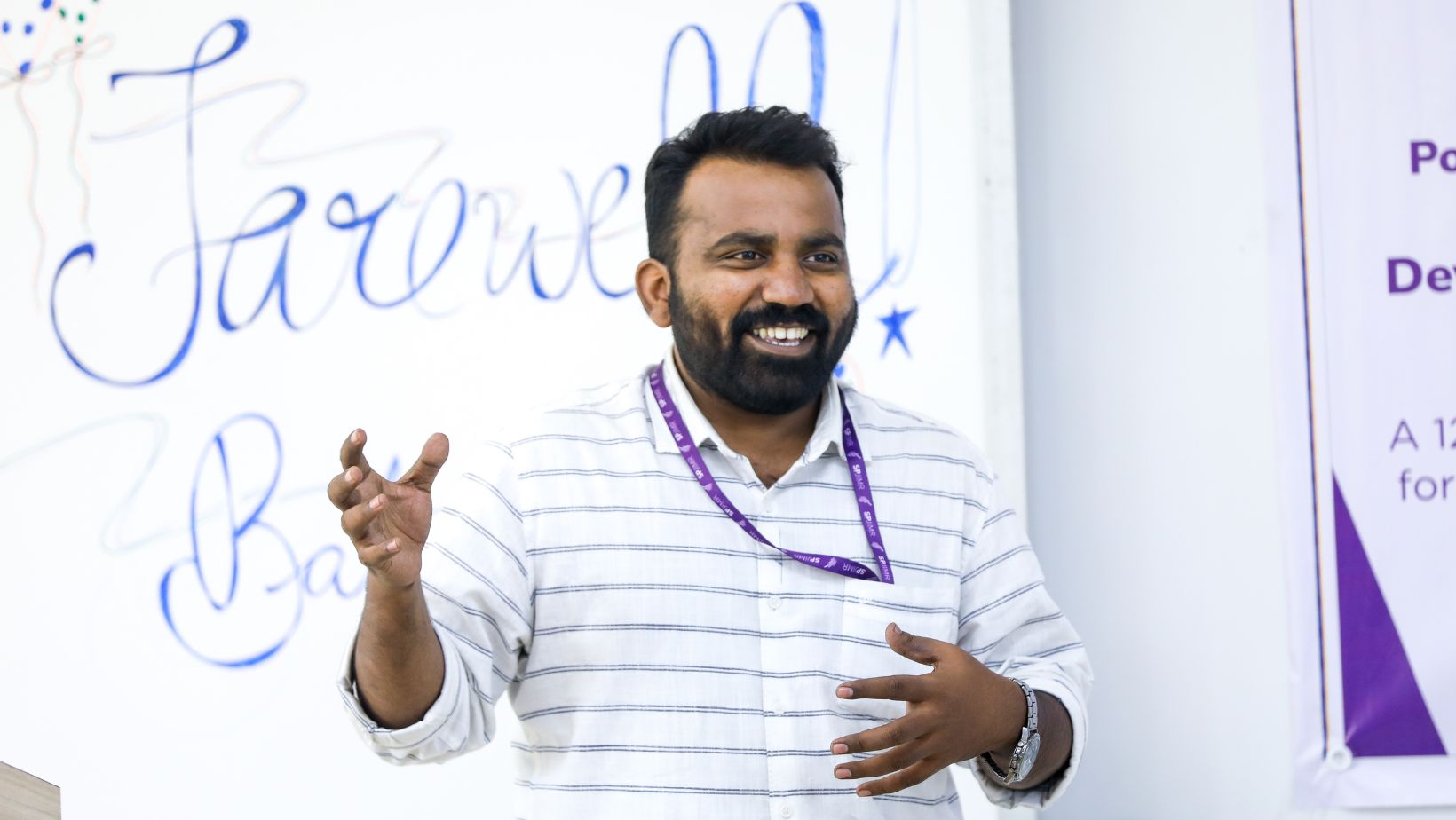
This article has been sponsored by SP Jain Institute of Management & Research
“There is a village far away from where I currently work called “Chaurasi”. The name always intrigued me and I later found out that it was because the place was once adorned with 84 temples. The temples now stand dilapidated, with scattered stones showcasing fine craftsmanship and some engraved with intricate statues. Coming here [SPJIMR], I saw each participant as the stone of that temple, and this programme as shaping an edifice out of them.” In his farewell speech, Maulik Sisodia, the Executive Director of Tarun Bharat Sangh and son of Mr Rajendra Singh, the Waterman of India, shared these poignant words.
After dedicating 14 years to an organization founded by his father nearly five decades ago, focused on water conservation, Maulik Sisodia recognised that he and his team needed to build the capacity to take the organization to the next level and decided to join the Post Graduate Programme in Development Management (PGPDM) at SPJIMR, Mumbai.
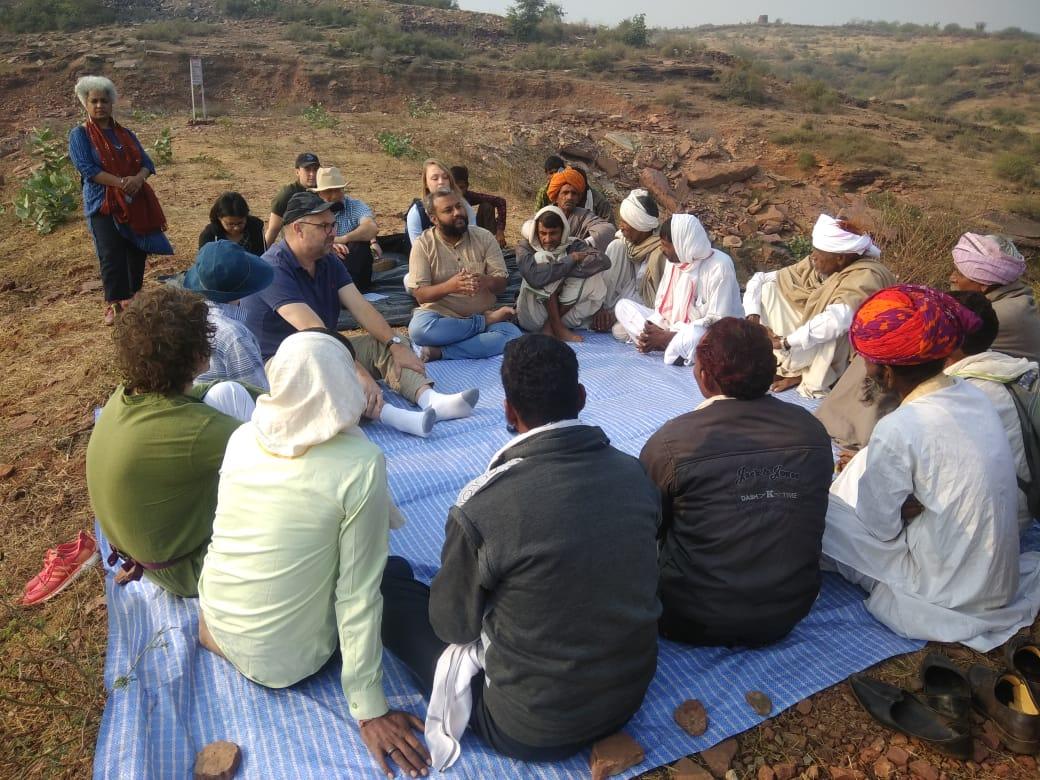
SPJIMR stands out for the socially responsible management education and their PGPDM introduced in 2011 is no different. The overarching aim of the programme is to develop value-based leaders who can innovate and transform social sector organizations to make a larger impact on society. Through a unique model that enables working professionals to attend classes whilst continuing their jobs, the programme is a testament to ‘learning by doing’. The programme is ideally suited for professionals working in or intending to work for the social sector. The unique design and pedagogy of the programme are a result of an understanding that while the development sector needs to draw upon the management principles to get impact at scale, the conventional corporate management principles are inadequate for the complex social sector. The programme uniquely blends the realms of development and management, harmonizing theory and practice seamlessly.
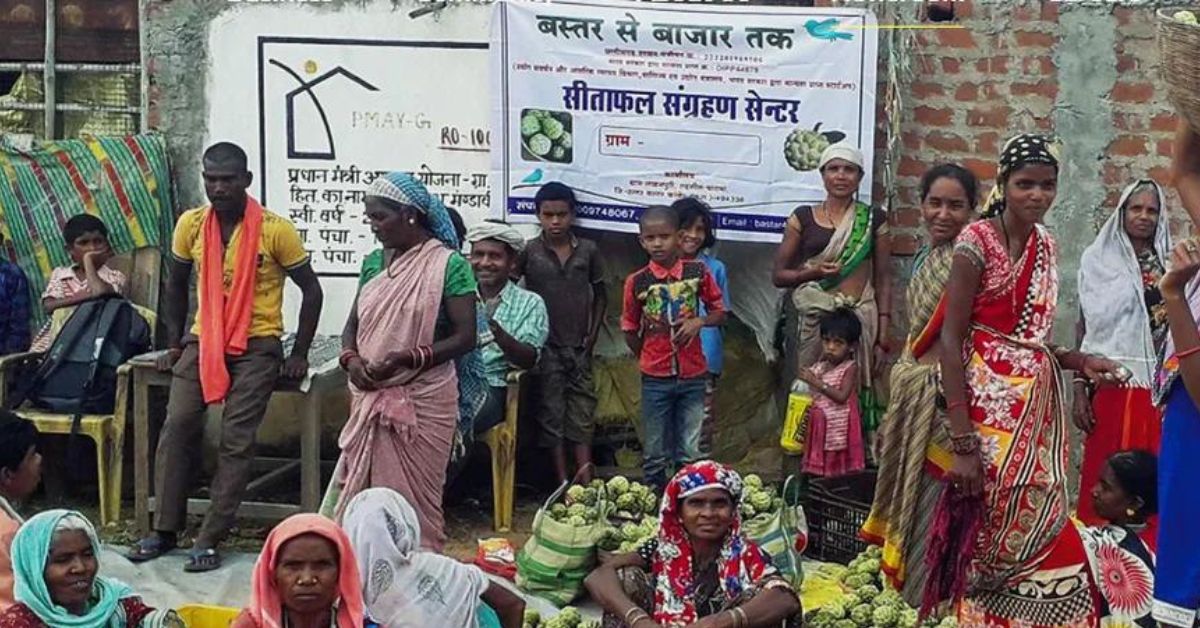
It was this unique model of the programme that drew Satendra Singh Lilhare, Co-founder and CEO of a social enterprise, towards it. In the remote corners of Chhattisgarh, stands tall Satendra’s organisation heartingly called Bastar Se Bazaar Tak. It was born out of a deep understanding of the challenges faced by tribal farmers to access the market for their produce and is now on a mission to uplift their lives. The journey from Bastar to the Bazaar is indeed a difficult one and Satendra explains how the PGPDM at SPJIMR makes walking the path a little easier.
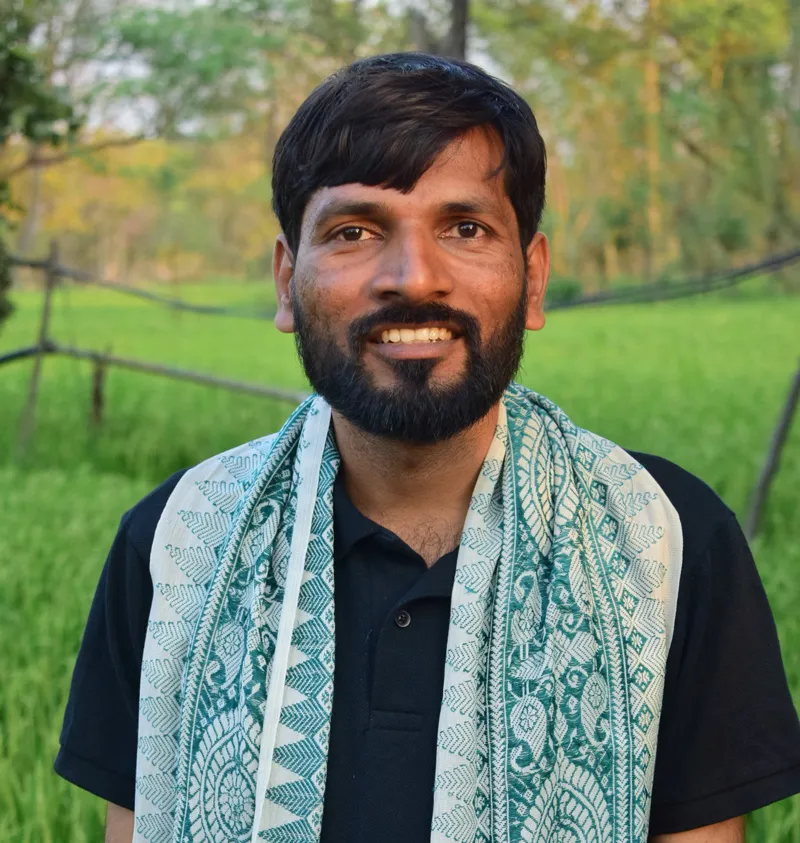
In a single statement summarizing his experience, he proudly expresses, “The programme made me a believer.” Initially, he had an understanding that the core values, vision, missions and aims of an organization are outlined in the website just for the sake of it; the core idea drifts too frequently to be etched as solid statements and which is why many organisations outsource the task of developing these ideas to external agencies. Eventually, his learnings from the PGPDM gave him so much confidence and insight that he has not only developed an unshakeable belief in the core values that his organization will carry but also charted them out into full-blown implementation strategies. No surprise, during the program, Bastar se Bazaar Tak won the Tata Social Enterprise Challenge (2020-21).
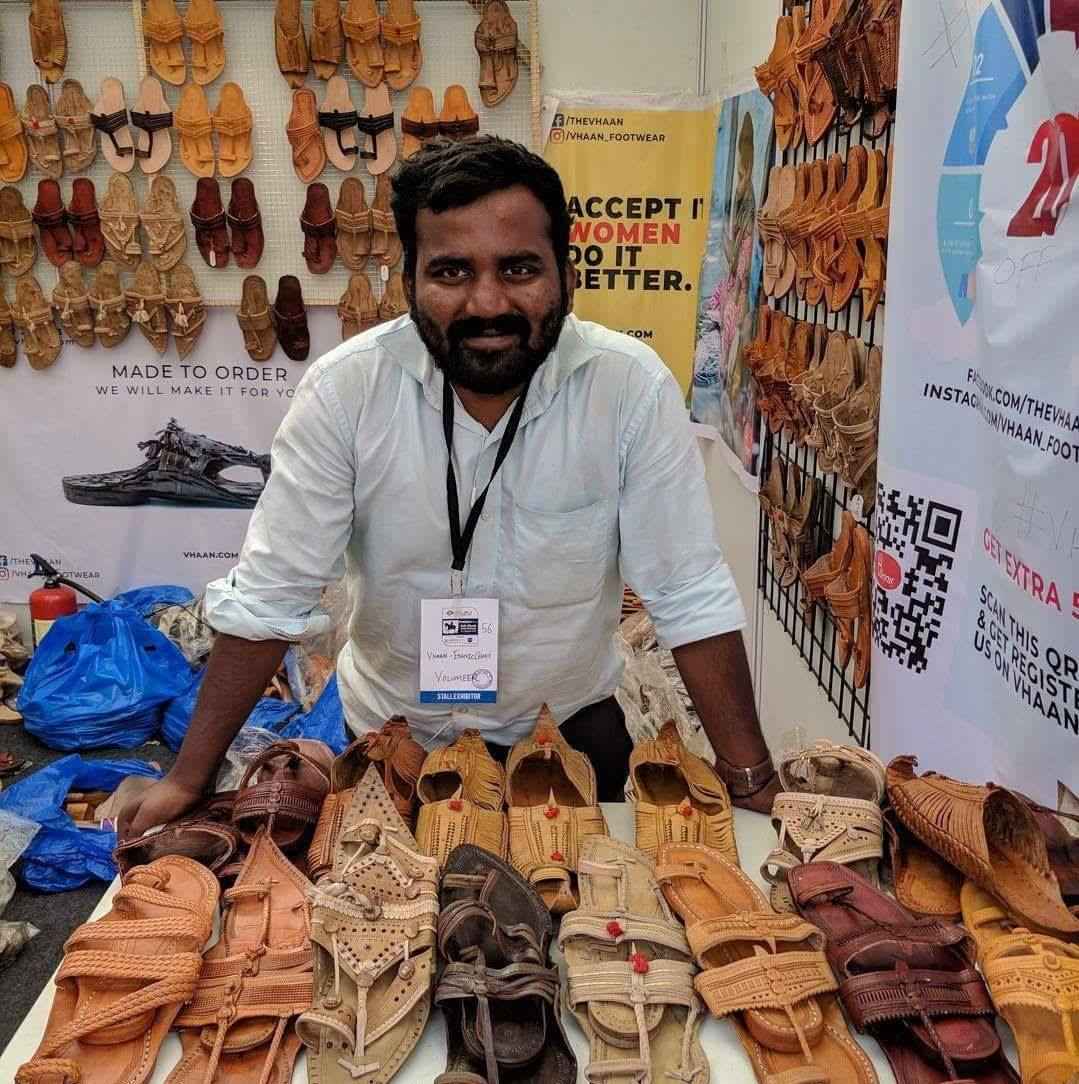
Another alumnus Bhushan Kamble who graduated in 2023, realized his leadership potential during the programme and went on to build his own artisanal brand ‘Vhaan’ which retails the finest handcrafted leather products by traditional leather craftsmen spread across multiple villages of Western Maharashtra. Growing up in the chawls of Mumbai, Bhushan believes that these artisans from the countryside connect us to the history of the area they come from through the stories they weave into each stitch and design. The goal of Vhaan is to restore this art form’s authenticity while making sure that the true storytellers take back the spotlight and are treated with dignity.
“The course taught me everything I needed to know about becoming a social entrepreneur. I learned how to think clearly, take care of accounting & finance, undertake surveys, build a team, design a project, gauge where we are headed as a team, and most importantly, how to incorporate previous learnings into new assignments,” he adds.
The assignments during PGPDM which necessitate drawing from various courses throughout the programme ranging from Theory of Change to Program Design, Fundraising to program Evaluation and Impact Assessment, from Public Policy to Advocacy & Networking and the series of management courses prepared Bhushan and other students to adapt to an ever-changing social sector and apply the learnings in real time scenarios.
Similarly, Maulik does not have one big but many small takeaways from the course. He shares how the course provided valuable insights into aligning his grassroots work with SDGs and staying relevant in the evolving development sector. Having always worked on the ground, he thought courses like Marketing & Branding Management were only for corporates. Today, he has created the brand guidelines for Tarun Bharat Sangh. New concepts like the Theory of Change and Design Thinking were implemented in his work resulting in improvements, including a refined website with a clear vision and mission. 
Maulik concluded his farewell speech accepting the shift in the social perspectives: “My house in the village has a window with iron bars. Our Bibi’s Suti Saree was used to cover the window, just like in the olden days. When it was sunny, the room would light up and when it showered, slight rain would enter the room. But whatever was happening was happening outside. The curtain was so high that we could only see people’s shadows beyond it. But during this programme last year, something changed, or maybe you all made it happen. The string of the curtain loosened up, and it came down a little. Now, I can look eye to eye into the society beyond. Now, as I go back, I have to see those faces with a new perspective and apply what I’ve learned here.”
Almost every student and graduate of PGPDM has a similar story to tell; a story of personal transformation for the transformation of the society. If you found our stories insightful, informative, or even just enjoyable, we invite you to consider making a voluntary payment to support the work we do at The Better India. Your contribution helps us continue producing quality content that educates, inspires, and drives positive change. Choose one of the payment options below for your contribution- By paying for the stories you value, you directly contribute to sustaining our efforts focused on making a difference in the world. Together, let’s ensure that impactful stories continue to be told and shared, enriching lives and communities alike. Thank you for your support. Here are some frequently asked questions you might find helpful to know why you are contributing?

For more information on the programme and eligibility criteria, click here.
This article was contributed by SP Jain Institute of Management & Research
This story made me
- 97
- 121
- 89
- 167












